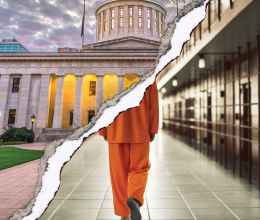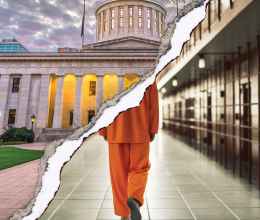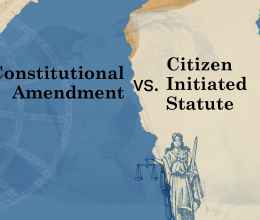COLUMBUS— The third iteration of the ACLU of Ohio’s Statehouse-to-Prison Pipeline report, issued today, reveals that 9.4% of all bills introduced by Ohio legislators during the 133rd General Assembly (2019-2020) created new crimes, enhanced existing sentences, or expanded current criminal laws.
This report is a follow-up to previous versions: a mid-session report issued in 2015, a full-session analysis of the 131st legislative session issued in 2017, a mid-session report released in 2018, and a full-session analysis from the 132nd session in 2019.
“Mass incarceration begins at the statehouse,” said Gary Daniels, chief lobbyist for the ACLU of Ohio. “The effects of continually doing what doesn’t work are well-documented, and the purpose of this report is to highlight the role and responsibility of the Ohio General Assembly in maintaining our state’s ongoing, dangerously crowded prison system. Many of the so-called "Pipeline Bills" may seem innocuous, but the result is a relentless, haphazard escalation of laws that imprison people.”
Even when crime falls, imprisonment does not. As of February 11, 2021, ODRC Director Annette Chambers-Smith announced that the prison population in Ohio is at 118% capacity. The ACLU of Ohio has analyzed three full legislative sessions and with each report are able to identify trends across the years and the chambers. The total number of “Pipeline” bills introduced fell compared to the 132nd and 131st OGA, and while the House numbers improved over time, the Senate continues to introduce more and more crime bills, year after year.
“This trend must stop. We cannot arrest, convict, and incarcerate our way out of this crisis, and while our legislature remains paralyzed by inaction, our communities are suffering; especially communities of Color,” added Daniels.
In the report, Ohio’s Statehouse-to-Prison Pipeline: 133rd General Assembly (2019-2020), the ACLU of Ohio urges legislative leaders to: stop introducing bills that create new crimes or place additional penalties into state law, and to instruct caucuses not to advance legislation already introduced that creates new crimes or criminal penalties.








